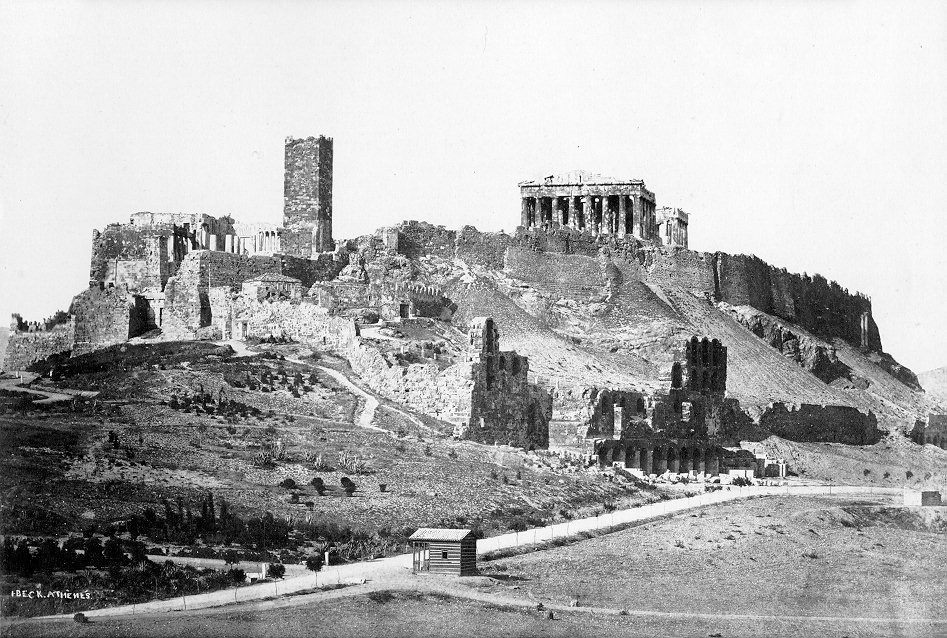There’s a lot of subtle linguistic history going on here.
The –ia suffix for names of countries did not get used much in the vernacular of 1800, but when it did, it was pronounced in the vernacular way, as –ja: the vernacular did not tolerate -e– or –i– as a separate syllable before another vowel, and reduced them to yod.
Thus, the vernacular name for the Ottoman Empire, as anyone who has paid attention to Greek folk song knows, was Τουρκιά turˈkja. The vernacular name for Bulgaria was Βουργαριά vurɣarˈja. The vernacular name for Venice was Βενετιά venetˈja (hence the saying έχασε η Βενετιά βελόνι, “Venice has lost a needle” = “big deal”, since everyone knew how rich Venice was). The peasantry rarely had occasion to speak of individual Western countries, but they did refer to the West, collectively, as Φραγκιά fraŋˈɡja “Frankdom”; thus the folk song about 1453 saying Mόν’ στείλτε λόγο στη Φραγκιά, να ’ρτουνε τριά καράβια “Send word to Frankdom to send three ships.”
The vernacular name for Albanians at the time was Αρβανίτες arvaˈnites, and the name from them as a group, or for their country, was Αρβανιτιά arvaniˈtja. As you can guess, this conflates the Christian ethnic Albanians living in Southern Greece (which are now called Arvanites) with the majority Muslim Albanians of Albania proper; if they needed to differentiate the former, they called them Muslim Albanians, which (given the lack of subtlety of the Millet system) was rendered as τουρκαρβανίτες “Turk Arvanites.” (Hence contemporary confusion by Greeks reading old sources, who assume they were some sort of mixed race).
After the introduction of Puristic Greek, and the corresponding looking down on the vernacular, the archaic -i.a form of the suffix displaced the vernacular –ja form. A real country deserved a “real” form of the suffix, and only the classical form –i.a would do. fraŋˈɡja was replaced with Ἑσπερία (H)espeˈri.a, and individuated Roman names (Gallˈi.a, Itaˈli.a, Germaˈni.a, Angˈli.a). turˈkja was replaced with turˈki.a, and vurɣarˈja with vulɣaˈri.a.
And in time the ethnic Albanians of southern Greece, who were being assimilated, were carefully differentiated from the Albanians of Albania, who were not: the former were left with a slight more archaic form of their name, Αλβανίται alvaˈnite (though eventually the vernacular arvaˈnites was restored), and the latter were distanced from the alvaˈnite by the rather older form of their name, which also matched what was being used in the West: Αλβανοί alvaˈni. Their country, accordingly, was Αλβανία alvaˈni.a.
Now the vernacular suffix –ja did not disappear from the face of the earth. It had other uses that remained in Demotic Greek, quite prominently as a nominaliser (στενοχώρια stenoxorˈja ‘sadness’, αρχοντιά arxontˈja ‘nobility’), and as an indication of sudden action (< –e.a: σπαθιά spaθˈja ‘blow of the sword’). But it was mostly displaced by the Puristic –i.a in names of countries and collectives.
Where it was not displaced was in country names, it’s because they weren’t “real” country names, within the reach of officialdom. Karvavitsas’ 1897 novel “The Beggar” shows a subtle distinction between Bulgaria (given its official name) and Vlachia (= Wallachia), as Rumania would still have been colloquially known: στη Σμύρνη, στην Πόλη, στη Βουλγαρία έως επάνω στη Βλαχιά! vulɣaˈri.a vs. vlaxˈja.
The suffix, as I said, also remained used as a nominaliser; when added to names of ethnic groups, it then denoted behaviour stereotypical of the group. I gave the example of arxontˈja ‘lordliness = nobility’; but given xenophobia, such nominalisations were mostly negative. So γύφτος ˈɣiftos ‘Gyspy’ > γυφτιά ɣiftˈja ‘Gypsy behaviour = uncivilised behaviour’. Βλάχος ˈvlaxos ‘Vlach; highlander’ > βλαχιά vlaxˈja or βλαχουριά vlaxurˈja ‘Vlachdom (used both positively and negatively of the Vlach nation—the Aromanian speakers of the southern Balkans); Wallachia (= Southern Romania); uncouthness’.
The homophonous suffix –ja < –ˈe.a, meaning a sudden action (spaθˈja ‘blow of the sword’) has expanded wondrously itself in colloquial Greek, to mean an action in general; it too is latterly applied to country names. So αμερικανιά amerikanˈja is a stereotypically American action (and it will not be meant in a good way); the SLANG.gr definition (Hi Melinda!) is:
Derogatory description of something we dislike and which is American. Usually used of movies. Often expresses the inability of the utter to express serious critical discourse rather than a specific attribute of what is being criticised. Example: “How was the film?” “An amerikanˈja.” “What do you mean?” “I’m telling you: an amerikanˈja.”
So. I actually have not ever heard the expression Αλβανιά alvanˈja. But this is what it can mean.
- It cannot be an old-fashioned, ballad-like name for Albania or Albaniandom, the way turˈkja or vurɣarˈja are. (vurɣarˈja, Google tells me, is still used in a hostile way by soldiers on the Bulgarian border.) It cannot be, because the stem is not vernacular: it’s alvanˈja, using the Puristic form of the stem, not the original vernacular arvanitˈja.
- It can be a derogatory description of an action (à la amerikanˈja). The xenophobic stereotype of what Albanians are like must have moved on since 1990s, but if I were confronted with an expression like τι αλβανιά πήγες κι έκανες, “What sort of Albanianry have you gone and done”, I would assume that petty crime or smuggling was involved.
- It can be a derogatory term for behaviour xenophobically stereotypical of Albanians. Pretty much as above, but not the description of a one-off action, but of habitual behaviour.
- It can be a derogatory term for Albania itself, or for a collective of Albanians.
